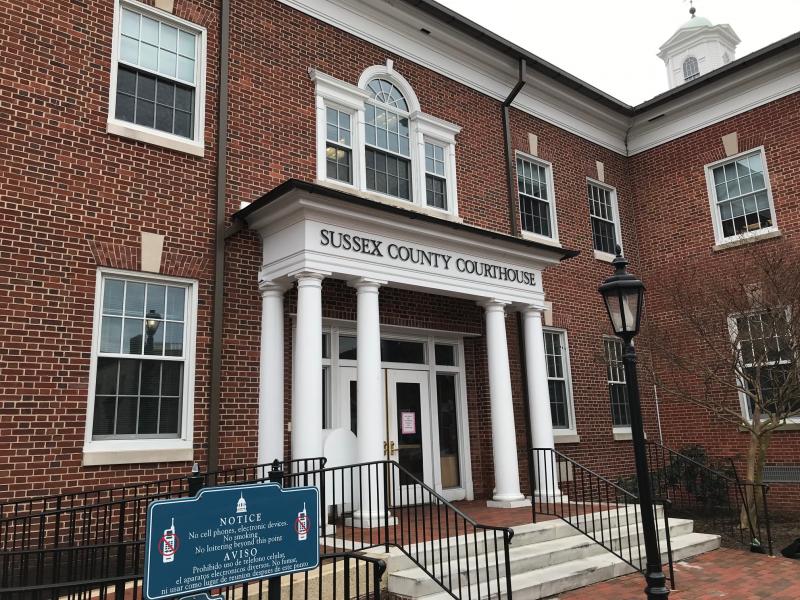Citizens want a voice in Mountaire settlement

Citizens in a class-action lawsuit want to have a voice in a possible legal settlement between Mountaire Farms and Delaware Department of Natural Resources and Environmental Control.
DNREC and Mountaire are opposing their motion to intervene because it would hold up improvements to Mountaire’s wastewater treatment facilities mandated by the settlement.
Delaware Superior Court Judge Richard F. Stokes set no timetable for a ruling on whether to allow attorneys Chase Brockstedt and Chris Nidel, who represent 750 and 45 clients, respectively, in suits against Mountaire, to join the legal fray. Stokes also did not specify when he would rule on the consent order between Mountaire and DNREC.
The case between Mountaire and DNREC dates back to September 2017, when Mountaire reported to DNREC that its Millsboro facility had failed, spraying wastewater that exceeded the effluent limits of its spray irrigation permits. DNREC found 17 violations, 13 of them spray permit violations, and four violations of its land-application permit.
DNREC then filed suit in Delaware Superior Court seeking approval of a consent decree requiring Mountaire to upgrade its Millsboro plant and pay $600,000 in fines. The consent decree would allow Mountaire to pay only $420,000 by offering an alternative water supply to nearby residents whose groundwater was contaminated by the September 2017 upset at the plant.
DNREC also filed suit against Mountaire in the U.S. District Court in Wilmington for violations of the Clean Water Act and the Resource Conservation and Recovery Act.
Running parallel to DNREC’s suit were lawsuits filed by Brockstedt and Nidel. Brockstedt’s suit started with Gary and Anne-Marie Cuppels, who suffered gastrointestinal issues they say are linked to Mountaire’s business practices.
Both DNREC and Mountaire sought Stokes’ signature in order move forward with improvements to the plant.
But Brockstedt and Nidel say the settlement is arbitrary and capricious, doesn’t address numerous issues related to operation of the plant, and the condition for reducing the fine in exchange for providing an alternative water supply is largely toothless.
“An alternative water supply is not putting bottles of water on their doorsteps,” Brockstedt said.
Brockstedt the contaminants in the water supply are a result of Mountaire’s past practices. He said neither Mountaire nor DNREC has provided any proof or expert evidence that the consent decree is the right thing to do. noting it does not protect citizens who live near the Mountaire plant.
Nidel said the decree lets Mountaire off the hook for legal claims related to the plant’s past practices. He said DNREC has given Mountaire a sweetheart deal in an attempt to get Stokes to rubber-stamp the consent decree. Nidel said by doing this, DNREC and Mountaire would render any federal claims his clients may make moot, because the consent decree prevents administrative claims against Mountaire for the company’s actions prior to the decree.
Brockstedt and Nidel argued the people affected by Mountaire’s past practices must have a voice. Their clients are legally allowed to intervene in the case as their interests are directly affected by the decree, the attorneys said.
Deputy Attorney General Deborah Scott, representing DNREC, said the decree was intended to address the September 2017 plant upset and that the decree is an enforcement tool to bring Mountaire in line. She said if Brockstedt and Nidel are allowed to intervene, it would hold up the implementation of an estimated $23 million in improvements to the plant. Scott said construction of the plant improvements will take 18 to 24 months.
Scott described the consent decree as a starting point and said there will be additional opportunities for public comment on the construction and operation of plant upgrades. She said the consent decree resolves the issues related to the plant and addresses past environmental violations. Scott said DNREC did not want to pile onto Mountaire but instead move forward and make the situation better.
Michael Arrington, attorney for Mountaire, said Brockstedt and Nidel are trying to have multiple bites at the legal apple in case their class-action suits do not succeed. He said they have no statutory right to intervene in the case.
Ryan Mavity covers Milton and the court system. He is married to Rachel Swick Mavity and has two kids, Alex and Jane. Ryan started with the Cape Gazette all the way back in February 2007, previously covering the City of Rehoboth Beach. A native of Easton, Md. and graduate of Towson University, Ryan enjoys watching the Baltimore Ravens, Washington Capitals and Baltimore Orioles in his spare time.










































